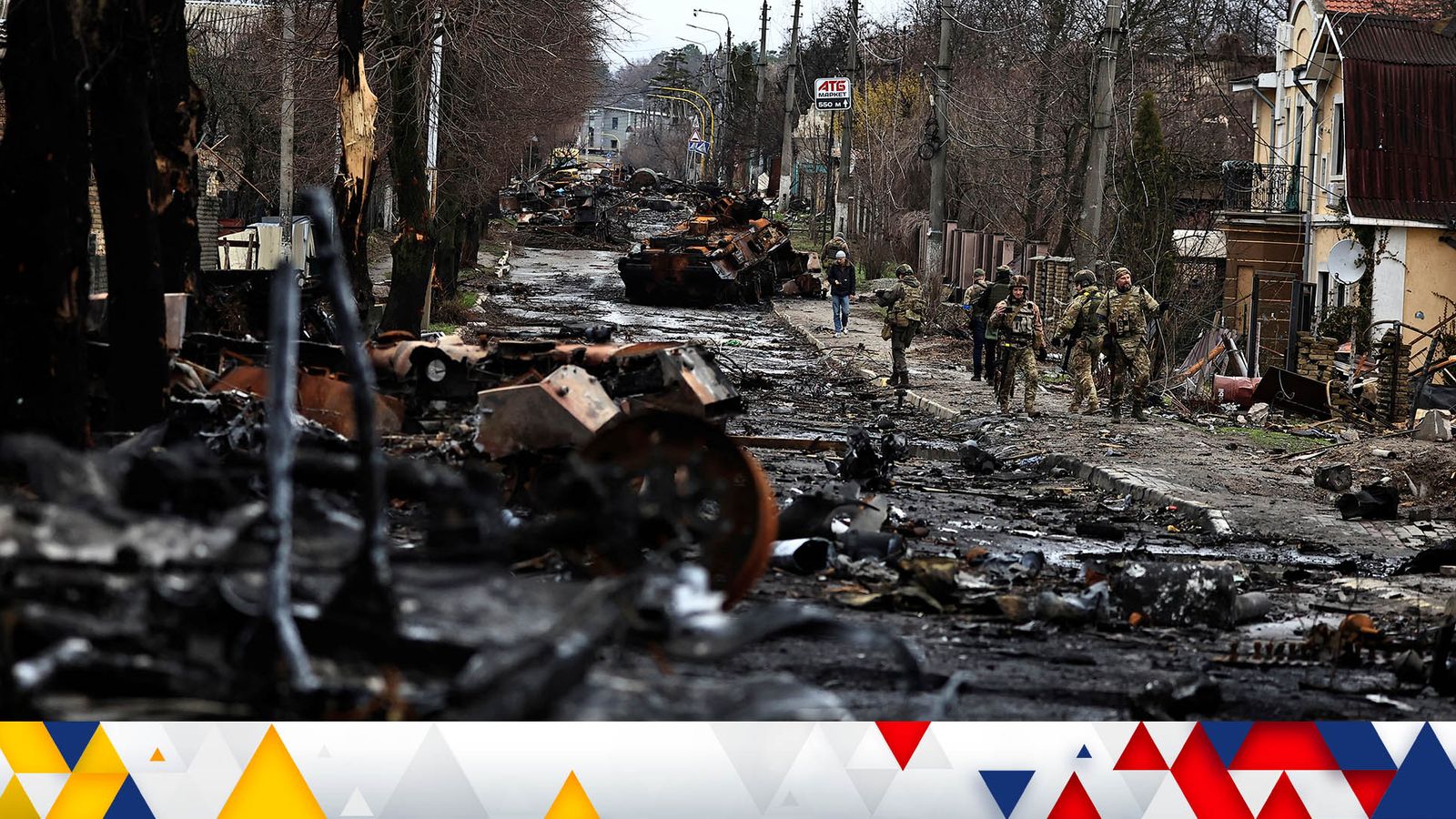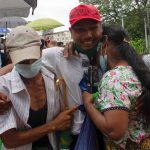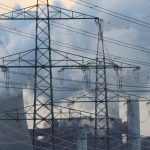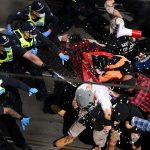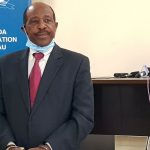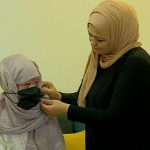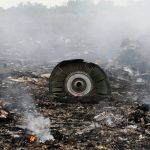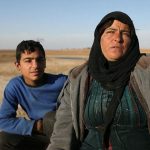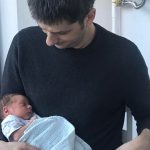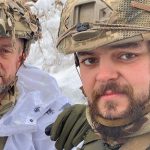There is now a new name to go down in infamy in the annals of war. Bucha has revealed a new nadir in Russian depravity during the invasion of Ukraine.
But Bucha is unlikely to be a single outrage standing out even in a campaign of atrocities perpetrated by Russia.
More it seems indicative of what is likely to come. Satellite photos taken above the city of Kherson suggest more mass graves have been dug there.
Entire villages are reported to have been wiped out in the Donbas region and Ukrainians say 70% of the city of Chernihiv has been destroyed.
Ukraine war latest – ‘Unspeakable horrors’ in liberated towns as satellite images show mass graves
Please use Chrome browser for a more accessible video player
There is no reason to believe the rape, summary executions and looting documented in Bucha will be in any way unique.
But Bucha has become a focal point for global outrage and galvanises efforts to hold Russia to account.
Ukraine war: Biden calls Putin ‘war criminal’ as Germany and France expel Russian diplomats after evidence of massacre in town of Bucha outside Kyiv
Ukraine war: What happened in Bucha and did Russian soldiers commit war crimes?
Ukraine war: Zelenskyy accuses Russia of ‘genocide’ as Western leaders condemn ‘despicable’ civilian killings
War crimes investigators from the US and European nations are thought to be in Ukraine adding their efforts to those of Ukrainians compiling evidence to hand to the ICC in the Hague.
Ukraine has a special distinction in war crimes law stretching back to World War Two. Two Jewish legal scholars from the western city of Lviv practically pioneered the concepts of genocide and crimes against humanity during the Nuremberg Nazi trials.
Prosecutors will draw on the work of Raphael Lemkin and Sir Hersch Lauterpacht if and when they can bring Russian suspects to justice.
Ukrainian human rights expert Ivan Horodysky told Sky News that the list of suspects will be long and from President Putin down.
“It doesn’t matter if the person was president or general or officer or sergeant or soldier. It matters what crimes were committed and whether there are proofs that he or she committed these crimes,” he said.
Helping the investigation is the highly digitised nature of both Russian and Ukrainian societies, meaning there is likely to be far more data to draw on than in previous conflicts.
And Mr Horodysky says Ukrainian authorities and prosecutors already have substantial information to work on.
“Currently Ukrainian intelligence is publishing a list of military units that were deployed in these cities and to specify members of these units and international justice bodies will have names and surnames of people who were there when crimes were committed.”
The process is likely to take years but Russian suspects are likely to be exposed to the risk of arrest sooner than later. Russian soldiers and officers may be fearful of travelling outside Russia for fear of being detained.
But unless there is a significant change of regime in Moscow, higher officials are unlikely to face prosecution unless they leave the country.
Ukrainians will be determined, however, to bear witness to the outrages to honour their victims and to deter Russians from repeating their worst excesses elsewhere.
And ultimately they hope Russian war criminals will be brought to justice.
